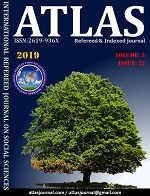REASONS FOR DISCLAIMER (İBAHA) IN ISLAMIC CRIMINAL LAW
DOI:
https://doi.org/10.31568/atlas.352Keywords:
Islamic law, criminal law, exemption from punishment, Hanafi schoolAbstract
The original in criminal legislation that prohibited acts are prohibited to everyone. An exception to this origin, the criminal legislation makes it permissible to allow certain prohibited acts if they occur in certain circumstances and under certain circumstances. The legislator considered that he had a stronger interest that should be protected by decriminalizing the act in those circumstances and because those to whom the forbidden acts were permitted came to achieve legitimate purposes, these reasons which allow them to prohibit acts raise the status of the offense and make it permissible. Murder is forbidden to all people but criminal legislation makes it permissible; whether it is in self-defense or the execution of the penalty. The wound is haraam for all people, but criminal legislation permits it to doctors if it is intended for treatment. The criminal legislation allowed some forbidden acts to achieve certain interests may not be deviated from them to other interests. The doctor was allowed to injure the patient for the purpose of treatment, but if the patient was injured for the purpose of murder, it constitutes an intentional crime and deserves punishment. In our study, exceptions to criminal judgments were compared with Islamic law within Hanafi's views.
Downloads
Published
How to Cite
Issue
Section
License

This work is licensed under a Creative Commons Attribution-NonCommercial 4.0 International License.


